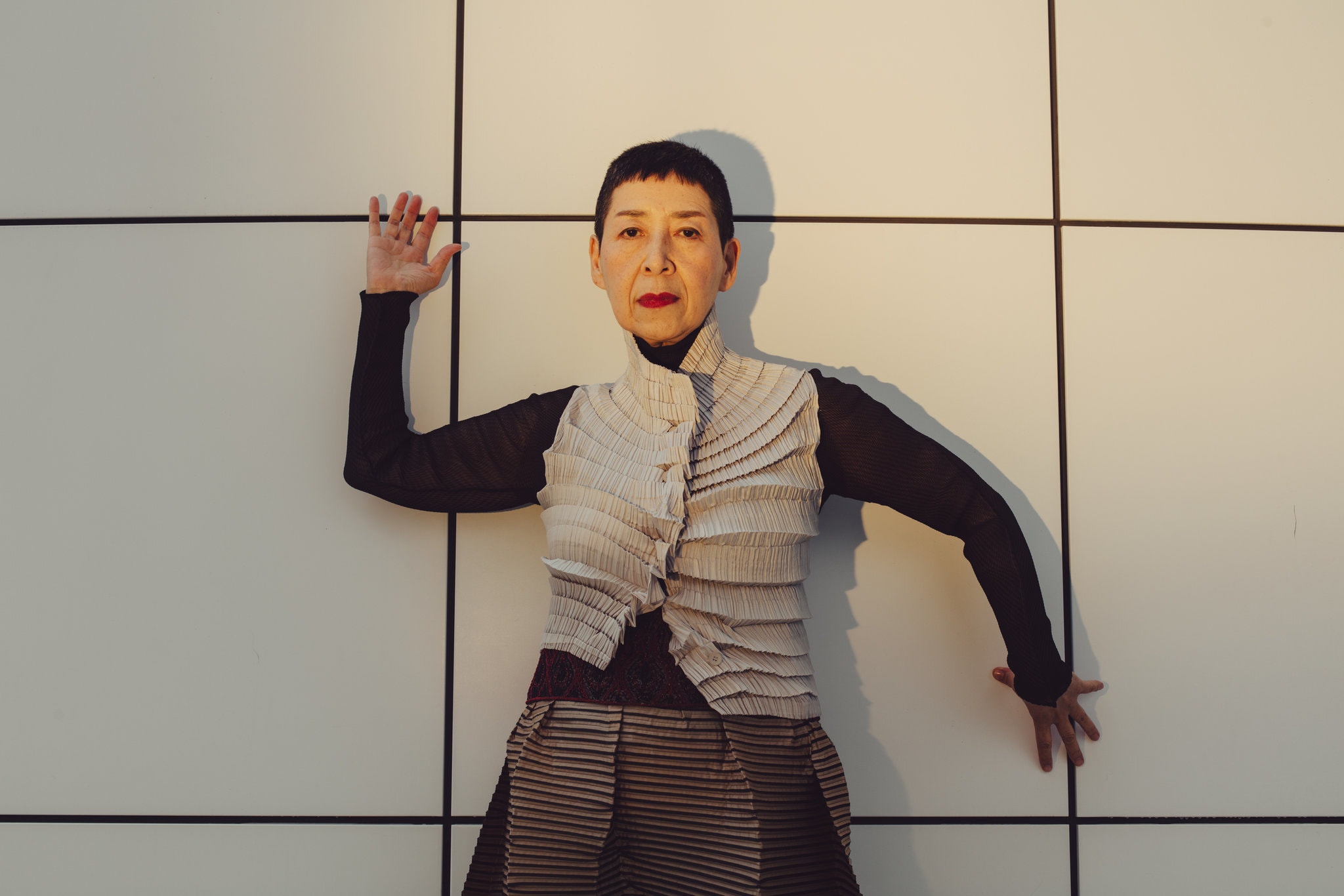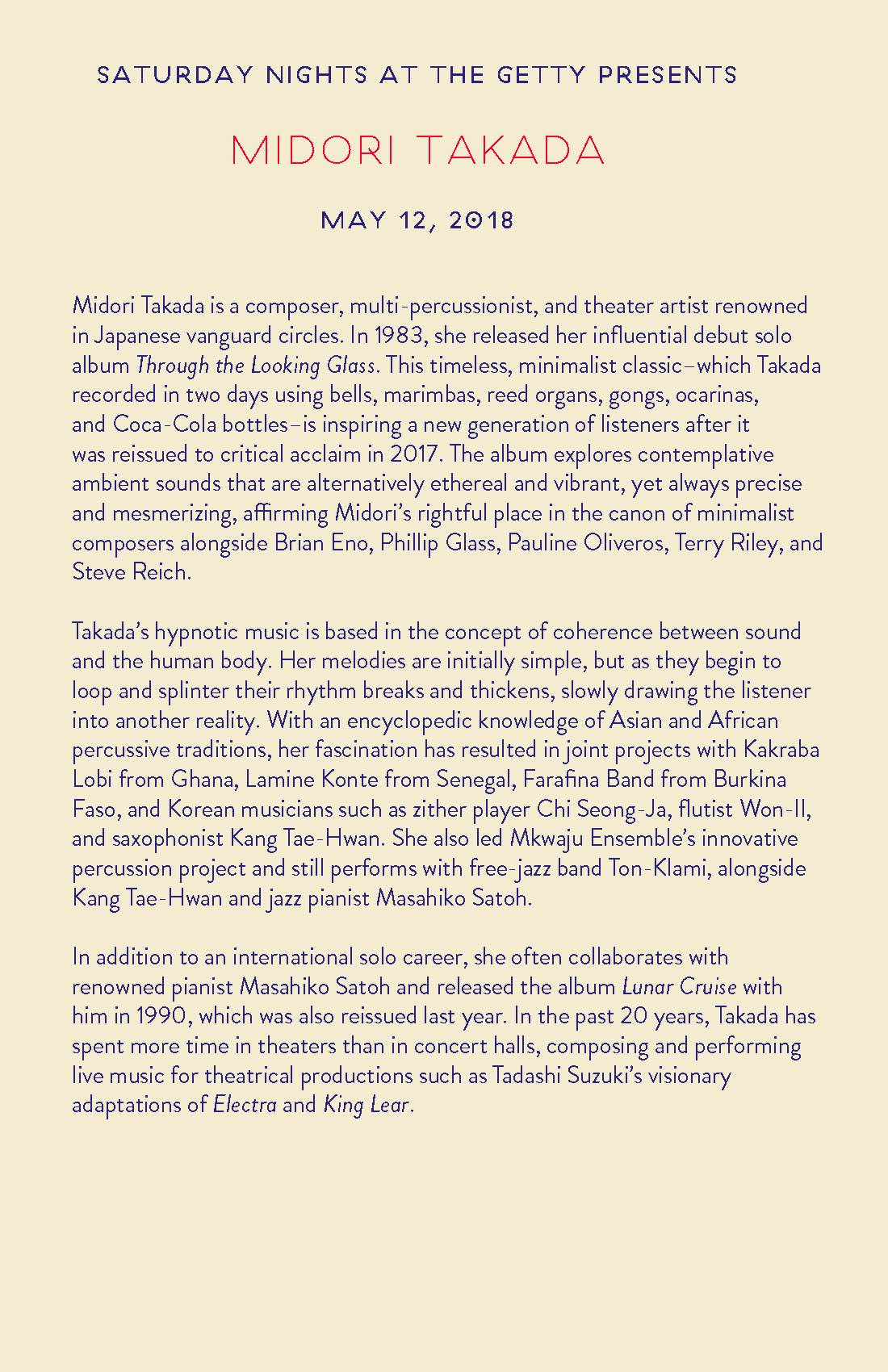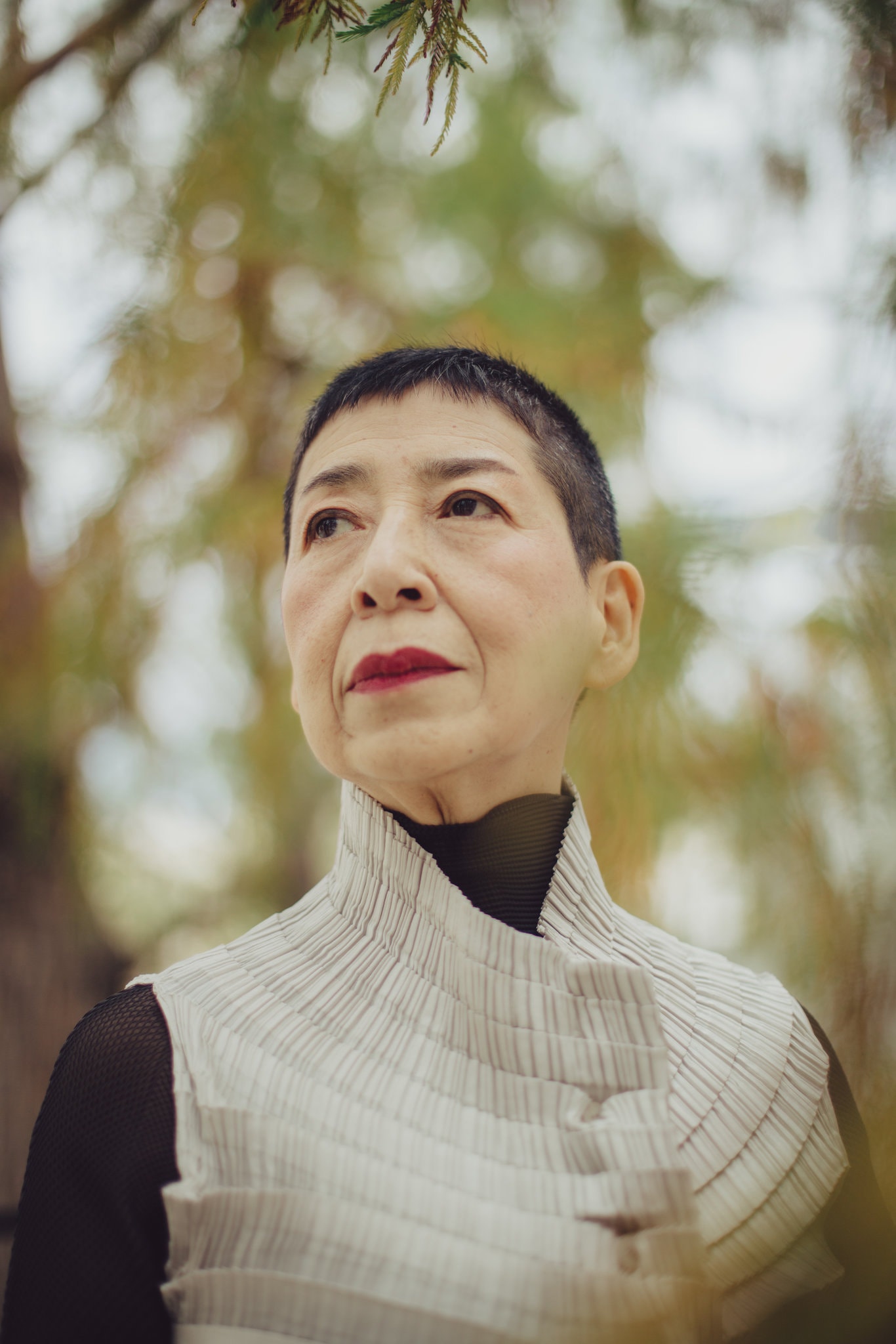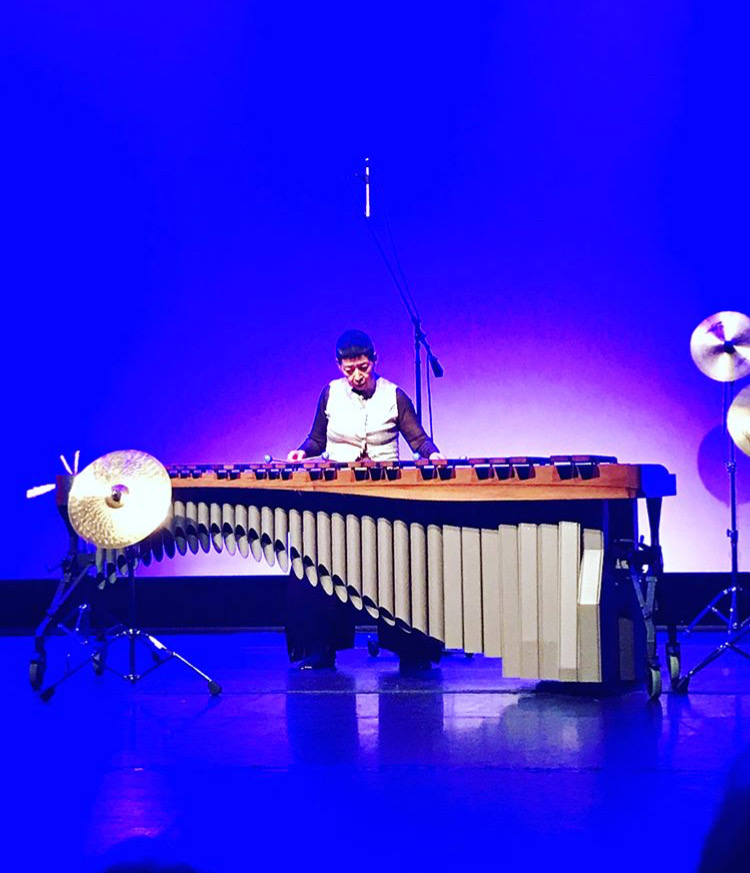2024
Sensing the Future: LIVE
Joan Jonas, Mirror Piece I & II
Off the 405: Hailu Mergia / Slauson Malone 1 / Helado Negro / Julia Holter / WOODS
2023
Kerry Tribe, JJJJJerome Ellis, Maral
Off the 405: SPELLLING / Makaya McCraven / Etran de L’Aïr / Rahill / Alabaster DePlume
Soup & Tart: Los Angeles
Julius Eastman: (Masculine) | (Femenine)
David Murray Quartet
2022
CRYSTAL GAZING
Marjani Forté-Saunders
Milka Djordjevic, Victoria Fu/Matt Rich
Image Frolics at Zebulon
Image Frolics article (The Kitchen)
Standing on the Corner Art Ensemble
MICROCOMPOSITIONS
Hand Habits
Bartees Strange
Zsela
Ever Present: Dissonant Days
Poussin and the Dance
2021
Meaningless Work, Get to Work
Phoebe Berglund Dance Troupe
Moor Mother
Refuge: Devendra Banhart & Noah Georgeson
2020
Brendan Fernandes: Free Fall for the Camera
Soup & Tart: Broadcast
Ben Kinmont for Active Cultures
ITSOFOMO
2019
Steve Reich’s Drumming
Bridge-s by Solange Knowles
Martin Creed
Ex Hex
Mother Earth's Plantasia
San Cha
Colin Self
Ben Babbitt
Mandy Kahn
Lala Lala
Carolyn Pennypacker Riggs A.S.T.R.A.L.O.R.A.C.L.E.S + Ana Roxanne
Jennifer Moon & laub
Jordi
Cate Le Bon
L'Rain
Kaitlyn Aurelia Smith with Cool Maritime + Emily Sprague
Sasami
Lonnie Holley
Friday Flights 2014-2018
2018
Eyes of Laura Mars & Fashion Films
Combo Chimbita
PIANO—GRAPHS
No Sesso + Kelsey Lu
Gun Outfit
Tyler Matthew Oyer
Ian Svenonius’ Escape-Ism
Lola Kirke
Dynasty Handbag
Geneva Jacuzzi
Vagabon
Corey Fogel
Elliot Reed
FEELS
No) One. Art House
Sarah Davachi
Devon Welsh (Majical Cloudz)
Tom Krell | Tram Music
Artists' Books Fest
Peaking Lights Family Band
Allah Las
Midori Takada
2017
Maria Chavez
Helado Negro
See What You Mean: Harry Gamboa Jr.
Savoy Motel
Kenyatta A.C. Hinkle
Scott Benzel
Psychic Ills
Steve Gunn
Institute for New Feeling
Molly Surno with Brian Chase
Sun Araw
Reggie Watts
La Luz
Brendan Fernandes
White Fence
Sam Rowell
William Tyler + Noveller
Dungen: The Adventures of Prince Achmed
John Berger's Ways of Seeing: A Live Reading
KCHUNG News Residency
Simone Forti, News Animations
2016
Leonard Cohen, A Celebration
Derek Jarman's Blue
Charles Atlas' The Legend of Leigh Bowery & Teach
Free Cinema
Demdike Stare
Veggie Cloud Film Series
wildUp
David Horvitz Posters
David Horvitz & Xiu Xiu
Jennifer Juniper Stratford
Laurel Jenkins' B A S E
Jim Drain
M. Geddes Gengras
Burger Records
Kevin Morby
Carolyn Pennypacker Riggs + mecca vazie andrews
Chris Cohen
Moses Sumney
Kianí del Valle
Juicerinas
Mary Lattimore & Jeff Zeigler score Le Revelateur & Odilon Redon
2015
Getty Salad Garden
Ed Ruscha's Premium
THOUSAND ISLAND
Harry Gesner in the Getty Salad Garden
OOIOO
Lee Ranaldo
Jessica Pratt
5 Every Day
Lucky Dragons
Yoko Ono Morning Peace
Barbara Kruger 'Tag Wall'
Shannon & the Clams
Total Freedom
Julianna Barwick & Matthew Brandt
2014
Body/Head (Getty)
Daisies & Jennifer West
Mikael Jorgensen & Cassandra C. Jones
No Age
Ooga Booga
Liars
William Tyler & Harry Smith
2007-2013
Body/Head (MoMA)
Sofia Coppola & Phoenix
Abstract Currents
David Lamelas & Carlos D'Alessio
The Clock—Silent Disco
Exquisite Corpse & Au Revoir Simone
The Raincoats
Forth Estate & Real Estate
Paper Rad & Cory Arcangel
About
May 12, 2018
Getty Museum, Los Angeles

Midori Takada at the Getty Center May 12, 2018. Photo: Rozette Rago for The New York Times




